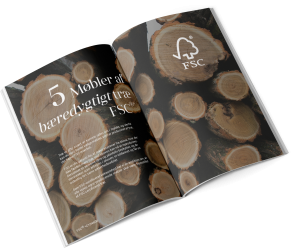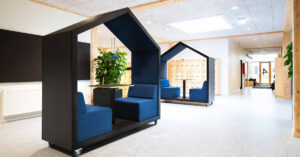According to a study, sustainability in the hotel industry affects more than merely the environment. It also has a positive impact on guests’ perception of their hotel. They perceive sustainable initiatives as caring.
Guests respond positively when a hotel chooses not to wash their towels every day, to serve organic breakfast or to use only green energy to power their elevators.
This is according to research conducted by the Alexandra Institute. As part of their research project, “Sustainable Transition in the Hotel Industry”, the institute investigated how guests perceive hotels’ green initiatives.
They interviewed guests who had stayed at sustainable hotels, and there was a clear trend: It feels good to stay at a hotel that takes responsibility and minimizes its environmental impact. Guests find this appealing. They feel they can tap into the concept and engage with it when staying at the hotel.
“Sustainable initiatives are an extra perk, and they make a hotel stay even better.”
“It eases the conscience.”
In the study, guests were also asked why they liked staying at a sustainable hotel.
Some answered that it eased their conscience, because they were fully aware that traveling and staying at hotels are not the most environmentally sustainable pastimes.
Others liked the thought of “caring for the Earth” or were simply curious and wanted to learn more about the green solutions because they found them inspiring on a personal or professional level.
Regardless of their reasons, all respondents considered the hotel’s green ‘actions’ positive.
Communicating Green Initiatives
If guests are to perceive a hotel’s sustainable initiatives as caring, it is crucial that their attention is drawn to the initiatives. This can be achieved by making them visible, for instance with signs in the rooms or on the breakfast buffet, or through dialog with hotel staff.
“Information explaining why towels are not washed every day, or why furniture is ‘merely’ reupholstered rather than replaced with brand new pieces, wards off any disappointment or negative feelings guests may have about the hotel.”
The explanation actually helps hotel guests understand and gains their support.
Guests Like to Pitch in
However, sustainable ambitions in the hotel industry do not stop at the hotel’s own daily routines.
Much of a hotel’s green accountability springs from the actions of the guests themselves and their behavior during their stay.
How does a hotel then move toward sustainability without damaging guests’ perception of comfort and service?
According to the research project, the answer is “nudging”. Hotels need to nudge their guests in the desired direction – towards a desired behavior – by making the solution as easy and straight-forward as possible.
For instance, a hotel may be making active efforts to combat food waste. Their plates are therefore smaller and they halve the croissants on their breakfast buffet, but guests can eat as many of the French delicacies as they like.
“Another example is a hotel that encourages guests to save energy by taking the stairs rather than the elevator. To this end, they have decorated the staircase beautifully with pictures, furniture and lighting to give guests an extra experience.”
The research project found that nudging is an excellent tool for involving guests in a hotel’s green transition.
Guests are very happy to pitch in and help reduce environmental impact. However, this means that the hotels need to make the right choices and select solutions that do not compromise on the good service and luxury that hotels are usually known for.
About the “Sustainable transition in the hotel industry” Research Project
- The project ran from May 2016 to the end of March 2017.
- The Alexandra Institute, Aarhus University, HORESTA, Green Solution House and Guldsmeden Hotels were partners on the project.
- The aim was to acquire new knowledge as well as specific guidelines to enable HORESTA to advise hotels on more energy-efficient operation by involving guests in the right way.
This blog is based on these three articles:
“Gæsterne opfatter bæredygtighed som omsorg” (Guests perceive sustainability as caring), “Foregrib kritik og negative oplevelser” (Nip criticism and negative perceptions in the bud) and “Gæster kan nudges til bæredygtig adfærd” (Guests can be nudged into behaving sustainably), all written by Marie Rørdam Fenger and Trine Plambech, Alexandra Institute
Guide to greener furniture-buying
Get our 8 best tips to act more sustainably when buying furniture.
We have made this green guide with all our tips and ideas which you can download here









